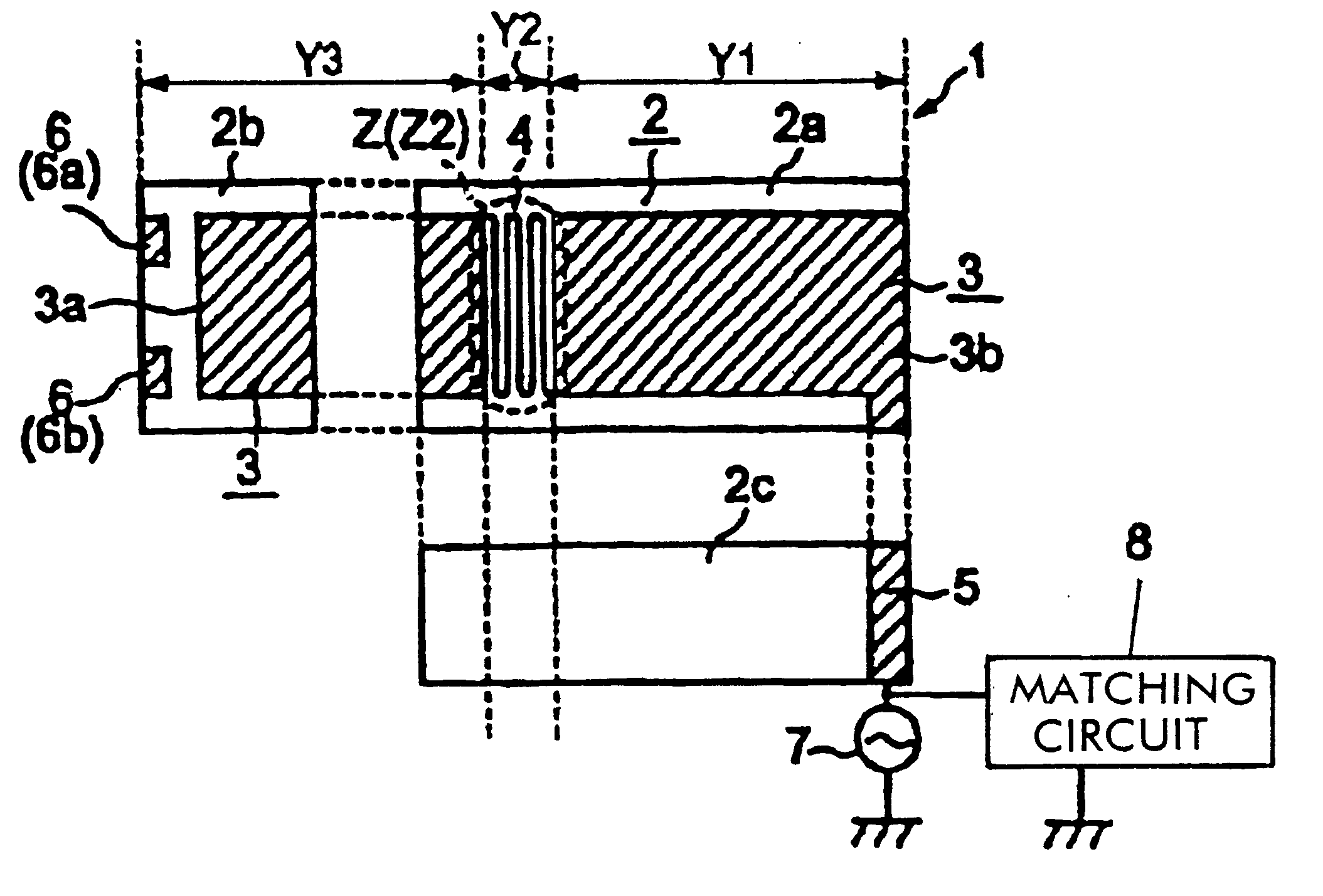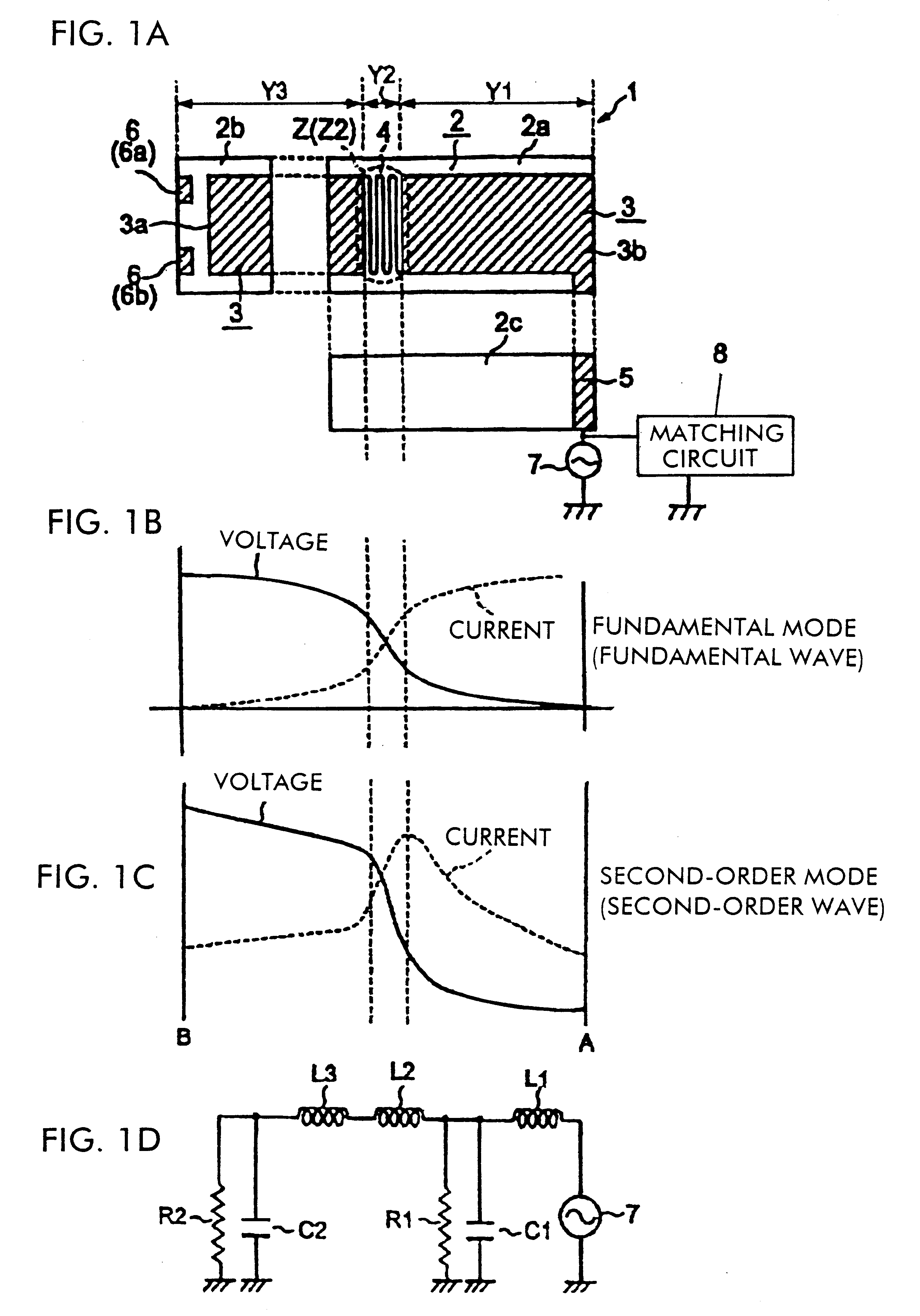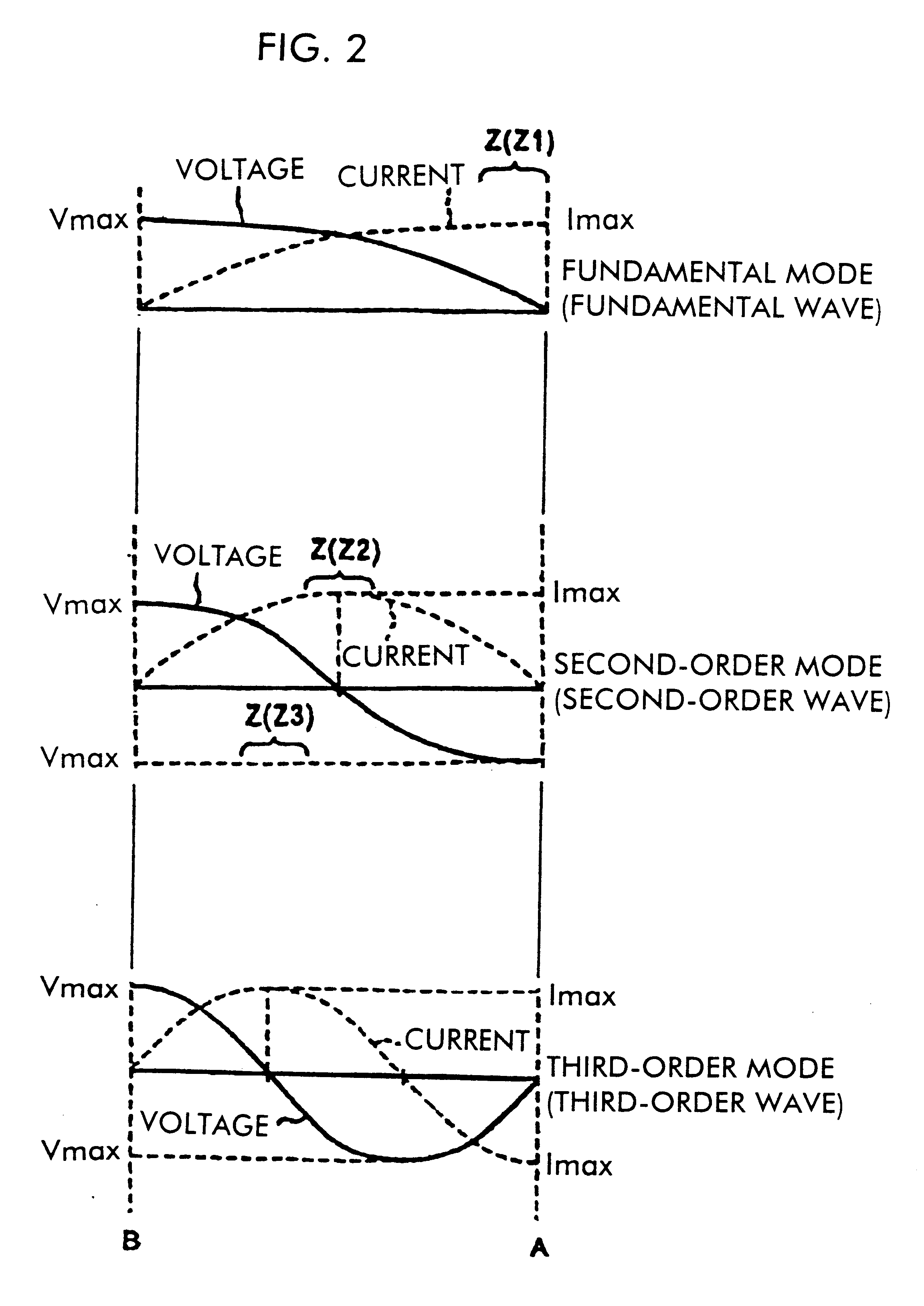Surface mount antenna and communication device including the same
a communication device and surface mount technology, applied in the structural form of resonant antennas, resonant antennas, protective material radiating elements, etc., can solve the problems of difficult to achieve a further reduction in the size of the antenna, difficult to set the difference between the resonance frequency in the fundamental mode and the resonance frequency in the high-order mode over a large range, and difficult to efficiently produce and provide an antenna with high performance and high reliability
- Summary
- Abstract
- Description
- Claims
- Application Information
AI Technical Summary
Benefits of technology
Problems solved by technology
Method used
Image
Examples
first embodiment
As shown in FIG. 1A, the feeding radiation electrode 3 is formed into the shape of a stripe extending from the upper surface 2a to the side face 2b of the dielectric substrate 2. A meander pattern 4, which characterizes the first embodiment, is formed locally in the feeding radiation electrode 3. An end 3a, on the left side of FIG. 1A, of the feeding radiation electrode 3 is formed to be electrically open and the end 3b on the right side is electrically connected to a feeding terminal 5 which extends from the right end 3b of the feeding radiation electrode 3 onto the side face 2c and further onto the bottom surface.
On the side face 2b of the dielectric substrate 2, fixed ground electrodes 6 (6a, 6b) are formed at locations spaced by gaps from the open end 3a of the feeding radiation electrode 3.
In practical applications, the surface mount antenna 1 is mounted on a circuit board of a communication device such that the bottom surface (not shown), opposite to the upper surface 2a of th...
second embodiment
A second embodiment is described below. The second embodiment is characterized in that, in addition to the structure according to the first embodiment, a meander pattern 10 is formed in a maximum resonance current part Z (Z1) in the fundamental mode in a feeding radiation electrode 3 as shown in FIG. 9A. Except for the above, the second embodiment is similar in structure to the first embodiment. Therefore, in this second embodiment, similar parts to those of the first embodiment are denoted by similar reference numerals and duplicated descriptions of them are not given herein.
In this second embodiment, as described above, a meander pattern is formed not only in the maximum resonance current part Z (Z2) in the second-order mode in the feeding radiation electrode 3 but also in the maximum current part Z (Z1) in the fundamental mode. As a result, series inductance components are locally added in the respective maximum resonance current parts Z in the fundamental mode and the second-ord...
third embodiment
This is utilized in the third embodiment to locally form an equivalent series inductance component in one of or both of the maximum resonance current parts in the fundamental mode and the high-order mode. Specific examples of surface mount antennas 1 having such a structure are shown in FIGS. 12A, 12B, and 12C.
In each of the surface mount antennas 1 shown in FIGS. 12A, 12B, and 12C, an equivalent series inductance component is locally added in a maximum resonance current part Z (Z2) in the second-order mode. In the example shown in FIG. 12A, a side end of the strip-shaped feeding radiation electrode 3 is partially cut out so as to form a cut-out portion 13 in a maximum resonance current part Z (Z2) in the second-order mode, and a parallel capacitance electrode 14 is disposed in the cut-out part such that the parallel capacitance electrode 14 is spaced from the feeding radiation electrode 3 by a gap, thereby forming a parallel capacitance component C between the parallel capacitance ...
PUM
 Login to View More
Login to View More Abstract
Description
Claims
Application Information
 Login to View More
Login to View More - R&D
- Intellectual Property
- Life Sciences
- Materials
- Tech Scout
- Unparalleled Data Quality
- Higher Quality Content
- 60% Fewer Hallucinations
Browse by: Latest US Patents, China's latest patents, Technical Efficacy Thesaurus, Application Domain, Technology Topic, Popular Technical Reports.
© 2025 PatSnap. All rights reserved.Legal|Privacy policy|Modern Slavery Act Transparency Statement|Sitemap|About US| Contact US: help@patsnap.com



